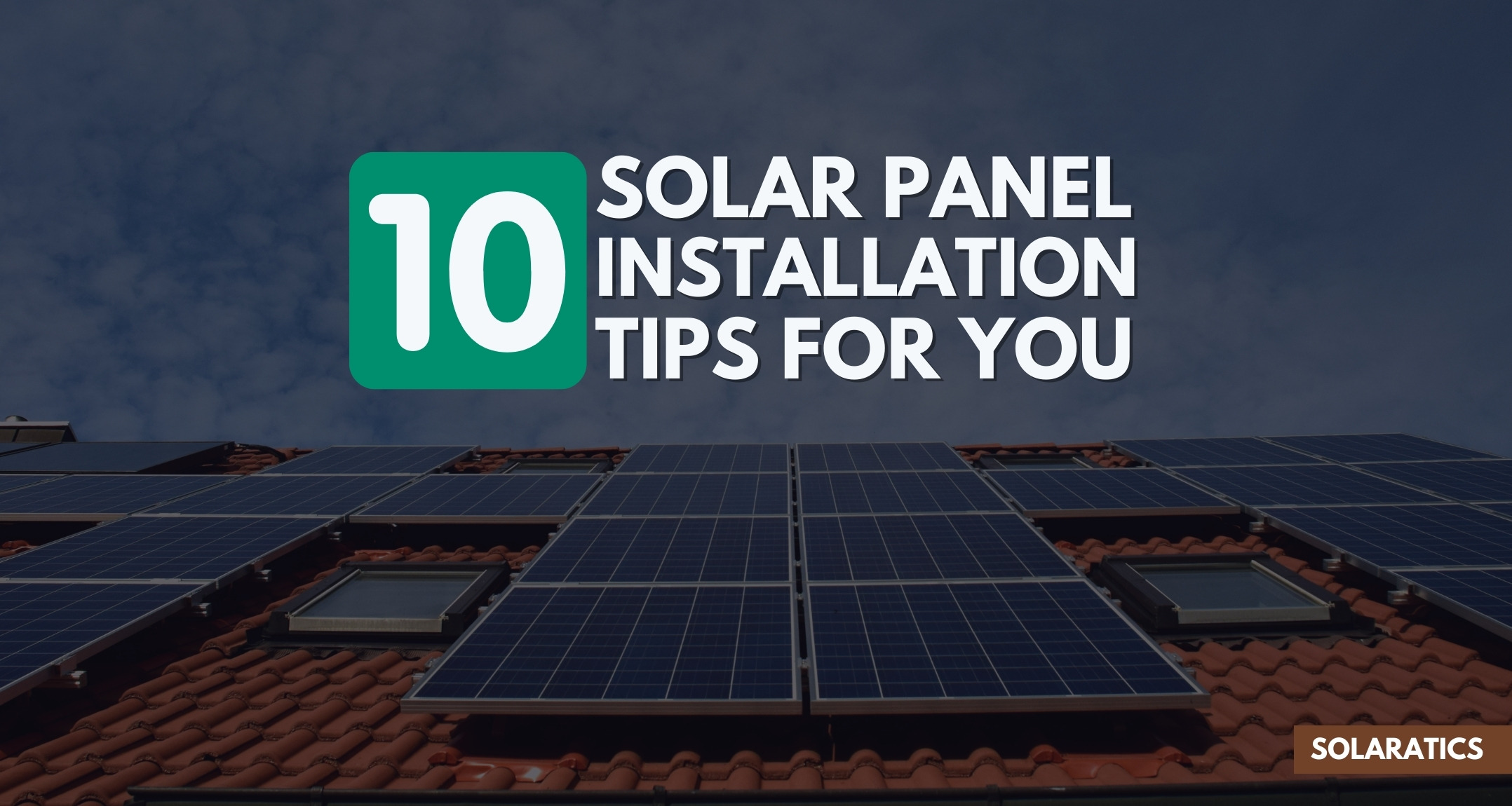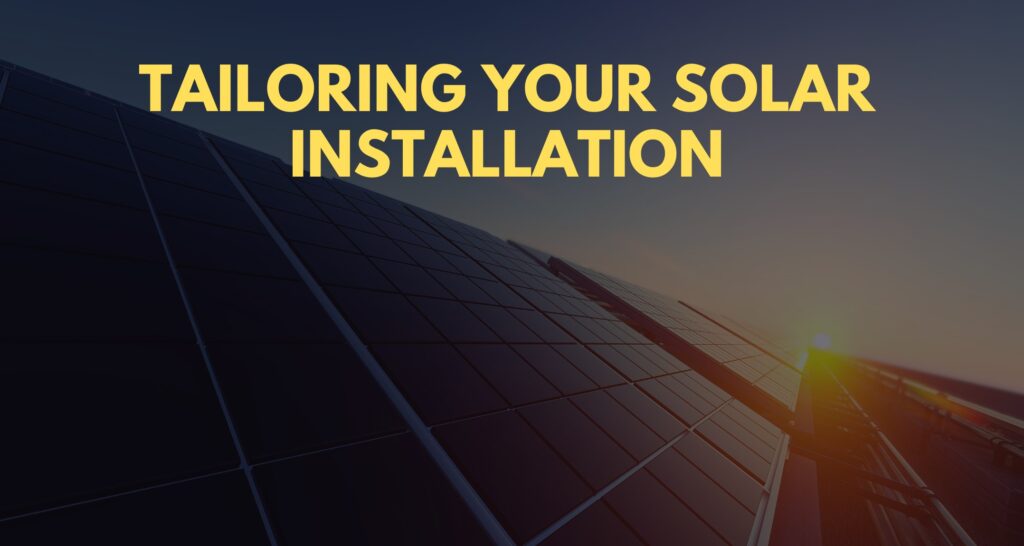10 Solar Panel Installations Tips Tailored For You

One of in Demand Topic Solar Panel Installation tips is because as the world embraces sustainable energy solutions, solar power emerges as a beacon of hope, offering clean electricity and reducing reliance on fossil fuels. There is a list of Benefits of going with solar Now a days and While the prospect of harnessing the sun’s energy is enticing, navigating the solar panel installation process can be overwhelming.
Fear not, fellow eco-conscious individuals! This guide provides 10 tailored Solar Panel Installation tips to ensure your solar installation journey is smooth, efficient, and tailored to your unique needs.
Solar Panel Installation Tips
1. Assess Your Energy Needs:
Before taking the plunge, determine your energy consumption by reviewing your past electricity bills. This helps calculate the system size needed to meet your needs and maximize your savings. Consider factors like your family size, appliance usage, and energy-efficient practices.
2. Analyze Your Roof:
Roof size, angle, and shading are crucial factors. Choose a south-facing roof with minimal shading for optimal solar panel performance. Consult a professional to assess your roof’s suitability for installation. Consider factors like roof age, structural integrity, Direct or indirect sunlight and potential shading from trees or buildings.
3. Research Solar Panel Systems:
Explore different panel types (monocrystalline, polycrystalline, etc.) and compare their efficiency, cost, and warranty. Select panels that are durable, weatherproof, and suited to your local climate. Additionally, research different inverter technologies and their compatibility with your chosen panels.
4. Choose the Right Installer:
Research and compare quotes from several certified installers. Look for experience, good reviews, and certifications like NABCEP (North American Board of Certified Energy Practitioners). Ask about their warranty policies, installation timeline, and experience with similar projects in your area.
5. Understand Incentives and Rebates:
Many governments and utilities offer financial incentives and rebates for installing solar panels. Research available programs in your area to maximize your cost savings. These programs can significantly reduce the upfront cost of your solar panel system and increase its overall financial viability.
6. Negotiate the Contract Carefully:
Review the contract thoroughly before signing. Ensure it details the system size, panel specifications, installation timeline, warranty terms, payment schedule, and dispute resolution procedures. Don’t be afraid to ask questions and negotiate for terms that are favorable to you.
7. Secure the Necessary Permits:
Most localities require permits for solar panel installations. Consult your local building department about the application process and necessary documentation. Obtaining the necessary permits ensures your installation complies with local regulations and avoids potential legal issues.
8. Consider Battery Backup:
Adding a solar battery backup system allows you to store excess solar energy for use during grid outages or peak demand periods, increasing your energy independence. This can be especially beneficial if you experience frequent power outages or want to maximize your self-consumption of solar energy.
9. Monitor Your System:
Most modern solar systems come with monitoring software. Regularly monitor your system’s performance to identify any potential issues and ensure optimal energy production. This allows you to detect and address problems quickly, maximizing your return on investment.
10. Maintain Your System:
While solar panels require minimal maintenance, periodic cleaning and inspections are crucial for maximizing their lifespan and performance. Schedule regular cleaning to remove debris and ensure optimal sunlight absorption. Additionally, consider professional inspections to identify any potential maintenance needs.
Tailoring Your Solar Installation:

Remember, your solar panel installation should be tailored to your unique needs and circumstances. Consider these additional factors:
- Budget: Set a realistic budget for your system and choose financing options if needed. Explore different financing options, such as solar loans, power purchase agreements (PPAs), or leases, to find the best fit for your financial situation.
- Aesthetics: Choose panels that complement your home’s design and maintain its curb appeal. Discuss available options with your installer and consider factors like panel color and size.
- Future Expansion: Consider your future energy needs when choosing a system size. Opting for a slightly larger system provides room for future expansion if your energy consumption increases.
Embrace the Journey:
Investing in solar power is not just a financial decision, but a commitment to a sustainable future. By following these tailored tips, you can embark on a smooth solar installation journey and reap the benefits of clean energy for years to come. Remember, the sun’s power is limitless, and by harnessing it, you can create a brighter future for yourself and the planet.
Disclaimer:
This information is for general guidance only. Consult with professionals for specific advice tailored to your location, home characteristics, and financial circumstances.
